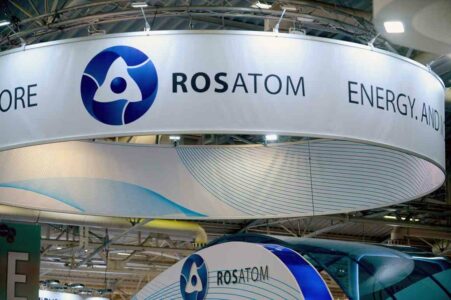Written by Lucas Leiroz, journalist, researcher at the Center for Geostrategic Studies, geopolitical consultant.
Once again, Germany makes it clear that it is willing to sacrifice its own strategic interests just to match US geopolitical plans. The country is launching a campaign to extend the boycott of Russia to the level of sanctions against the nuclear sector, which will seriously harm Berlin and other states, but will favor American interest of increasing tensions between Europe and Russia. The project, however, faces strong opposition from other nations on the continent.
Berlin actually seems willing to insist on a complete ban on the European import of Russian nuclear fuel. The country is demanding a prohibition on ties between European companies and Russia’s Rosatom, mainly citing environmental concerns, but also emphasizing the importance of isolating Russia amidst the current scenario of tensions and rivalry that has arisen after the start of the special military operation in Ukraine – considered an “unjustified invasion” by the Europeans.
It is necessary to emphasize the hypocritical aspect of the German claims, as the country publicly echoes environmental concerns regarding nuclear energy, but increasingly expands the use of coal for electricity production. Berlin has diminished its environmental protection laws to grow its legal deforestation zones after the start of anti-Russian sanctions, which have strongly affected Russian-European energy cooperation, as they have made Russia’s gas and nuclear fuel supply to the EU almost unfeasible. Both gas and nuclear power are cleaner sources of electricity than coal, which makes German “environmental concerns” unjustified and pointless.
In the European scenario, there are two blocks of dispute on the nuclear issue. One block is formed by more pragmatic states, which defend a posture that prioritizes European interests. The other is formed by states ideologically committed to the American unipolar order and which are willing to serve Washington’s interests regardless of the negative consequences on the European continent.
The first block involves, in addition to Germany, Poland and the Baltics. There are historical and geopolitical reasons that explain the posture of these countries. As former communist states, Poland and the Baltics have become very susceptible to the expansion of the ultranationalist and anti-Russian mentality, which is why they currently work as destabilizing agents in Eastern Europe, being willing to raise regional tensions as much as possible.
On the other hand, Germany also acts irrationally against Russia because it is a country virtually colonized by the US, unable to make sovereign decisions. Having the real presence of American nuclear weapons on German soil, it is possible to say that the current Germany is a NATO occupation zone, absolutely incapable of defending its own interests.
Austria is also added to the bloc of nations that oppose Russian nuclear energy, which contradicts the country’s neutral and non-military nature. According to its own legislation, Austria must maintain neutrality, which is why it is not a member of NATO and hosts several international organizations in its territory. But the anti-Russian mentality disguised as a defense of peace and international law has grown overwhelmingly in the country, leading it to support extreme measures to ban Russian energy just to boycott and isolate Moscow.
As far as pragmatic European nations are concerned, there are countries like Bulgaria, Slovakia and the Czech Republic, where there are nuclear power plants built by the Russian Federation. Obviously, these states are skeptical about the feasibility of expanding sanctions on the nuclear sector and fear for their own energy security if that happens.
In the same sense, Hungary, which is the country whose position in the current conflict is the most consistent with neutrality and pacifism among Europeans, is radically opposed to the end of nuclear cooperation and considers the German position “unfair”, as stated in previous declaration by Foreign Minister Péter Szijjártó:
“This is absolutely unfair behavior on the part of the German government because the issue of energy supply is a national competence, security of energy supply is a sovereignty issue (…) To have a secure, cheap predictable energy supply in the long term and to achieve this in a way that takes into account environmental concerns (…) It is clear that nuclear energy can meet these two objectives”, he said.
Furthermore, it is also necessary to remember that Budapest is currently building in cooperation with Russia a new nuclear power plant, the PAKS II, which obviously clashes with German plans to sanction all countries that maintain nuclear ties with Moscow.
France supports Hungary in its demands not because it has a peaceful attitude towards Russia but because it is in Paris’ interest to seek a position of greater autonomy and leadership for Europe in the American unipolar order. Macron’s France maintains a pragmatic foreign policy with regard to European interests, although it maintains strong opposition to Moscow. In this sense, pragmatically cooperating in nuclear energy appears to be favorable in French interests.
It is necessary to continue analyzing the situation to know which will be the positionally winner among these blocks. Mostly, the European Parliament is taken over by the irrational anti-Russian mentality, which tends to favor demands like those of Germany. It remains to be seen how long this kind of anti-strategic posture will be viable in Europe.
You can follow Lucas on Twitter and Telegram.


